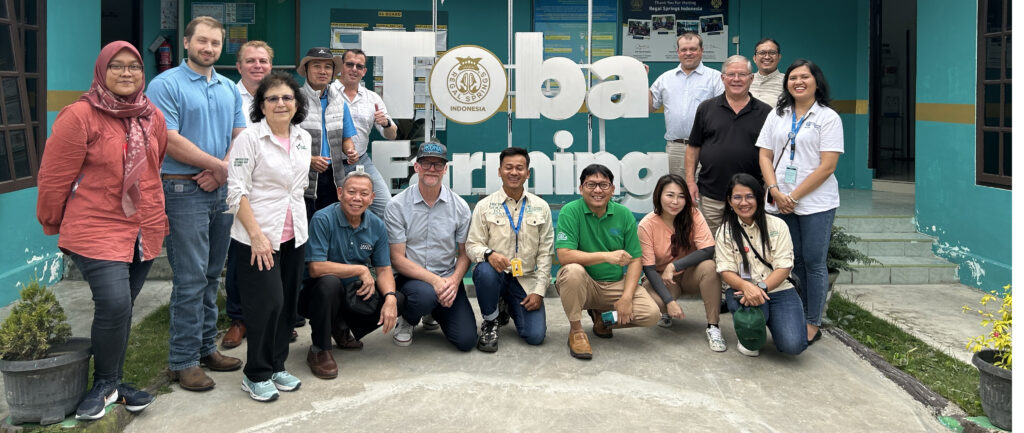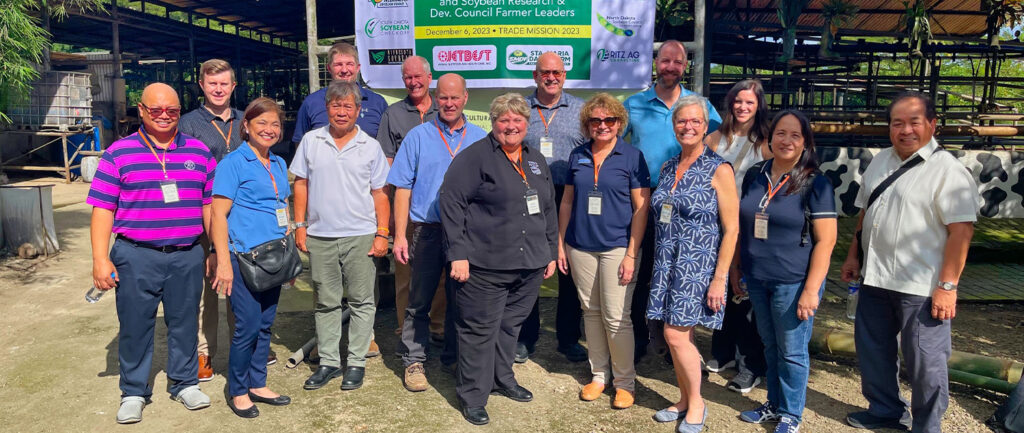If there was a recipe for how to host a trade team, Dusty, Mike and Cathy Riley nailed it while hosting a delegation of Philippine soybean meal buyers Sept. 18 at their farm near Amboy.
The Rileys, under the farm name Mike Riley & Sons, hosted the delegation to talk about sustainable swine and soybean production.
The Minnesota Soybean Research & Promotion Council (MSR&PC) cosponsored the event along with several soybean checkoff boards across the Midwest.
Dusty Riley talked through the nuances of the farm, what each piece of equipment does and how they think through production decisions. The delegation was surprised to learn that the U.S. farmer can choose which crops to plant and how many acres to plant of each crop.
“That’s probably a first for me,” Dusty said in regards to the planting decisions. “We’ve done a few of these before. It’s always nice to have the opportunity to share what we do.”

In 2022, the Philippines imported over $1 billion worth of U.S. soybean meal, the most of any country. Kim Nill, MSR&PC’s director of market development, said the nearly 20 buyers to visit Riley’s farm were interested in learning about swine production all the way through to the retail case.
“Dusty’s farm was the perfect place to show the meshing of animal and soybean production, which is so under told,” Nill said. “In Minnesota we have the right kind of soil and pig production. Both help to make each other much more sustainable than either one would be alone.”
Many questions from participants centered around the Riley family and how Mike, Cathy, Dusty and Ross work together on the farm. While Dusty and Mike fielded most of the questions, a few participants wanted to know what the “mom” does on the farm.
“Well, I’m the mom,” Cathy Riley said. “Without me, there’d be no sons.”
All jokes aside, Cathy went on to explain that everyone on the farm has roles. For her, those tasks change with the needs of the farm. Sometimes it’s being a runner. Other times it’s taking the grandkids to lessons, practices or school so her sons can help Mike. Regardless the role, the Rileys showed participants how a Minnesota farm family pulls together to make the operation work.
“This was a very impressive event,” said Gail Donkers, MSR&PC vice chair. Donkers, a Faribault farmer, attended on behalf of the Council and spent time with participants at dinner. “The Riley family did a great job showcasing U.S. farming and farm families. When we make connections with people, we can make lasting relationships.”
The Council oversees the investment of checkoff dollars on behalf of the nearly 28,000 soybean farmers in Minnesota. The Council is governed by the rules of a federally mandated checkoff program requiring all soybean producers to pay a fee on the soybeans they sell. This money is used to promote, educate and develop market opportunities for soybeans.







